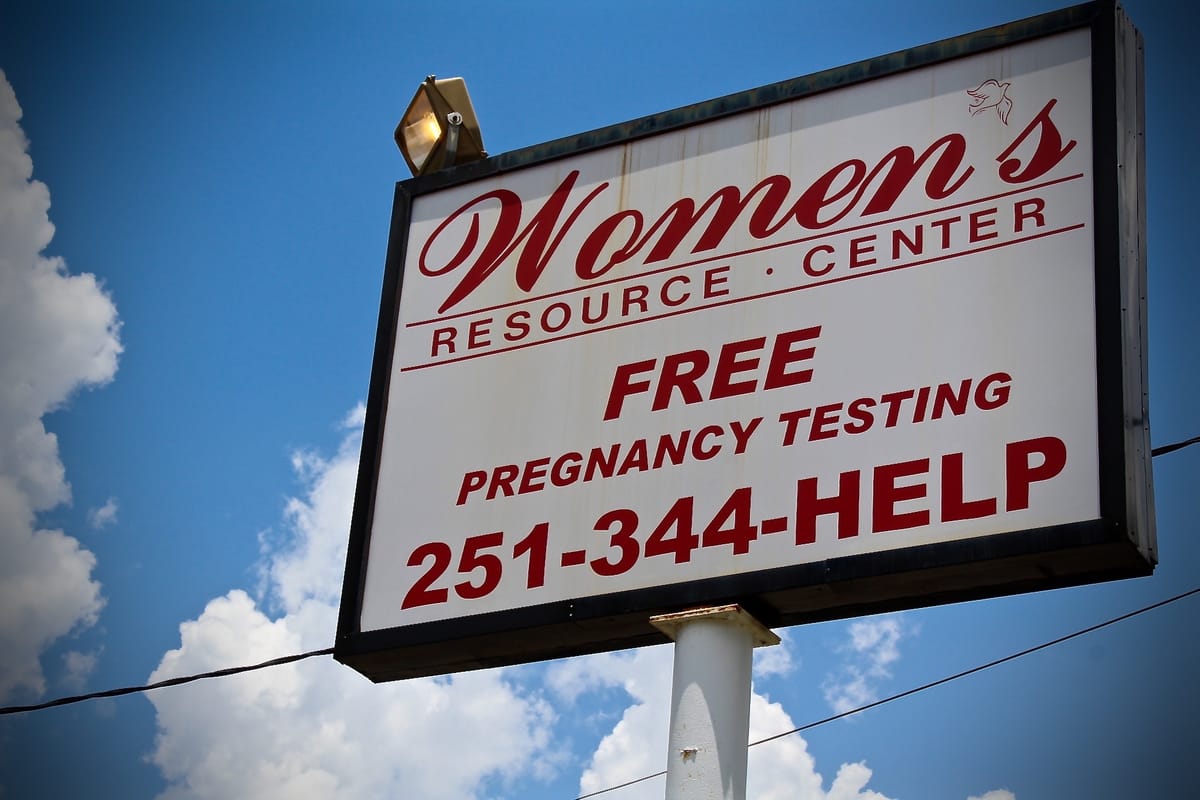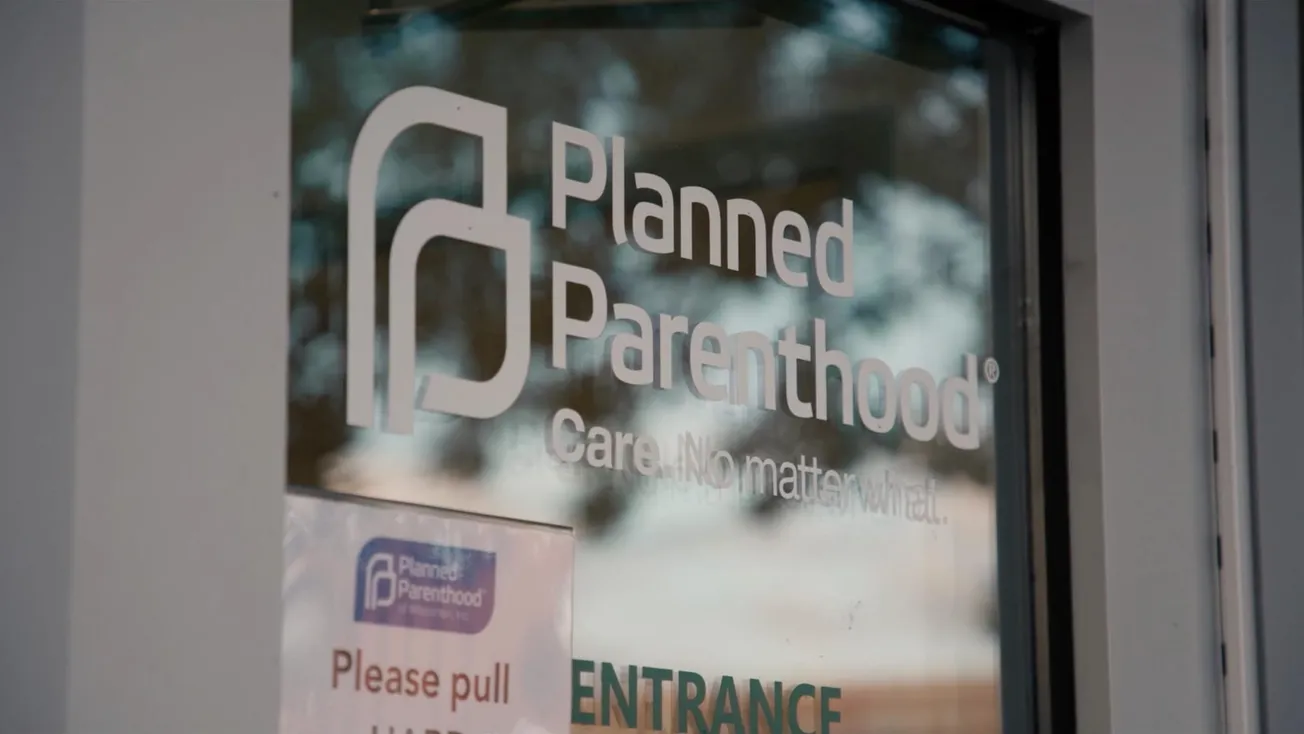On Saturday, the Associated Press published a piece about anti-abortion “crisis pregnancy centers”—specifically, their increased medical offerings, and their plans for expansion as Planned Parenthood facilities are forced to close. These centers exist to mislead, delay, and confuse people seeking abortions, and ensnare abortion seekers by posing as legitimate abortion clinics. It’s an industry that rakes in $1.4 billion annually, hundreds of millions of which flows through state governments.
The news agency promoted the story on Threads with a caption that reads like CPC ad copy: “Anti-abortion pregnancy centers offer much more than free ultrasounds and diapers. Here's why they're expanding as Planned Parenthood clinics close.” Curiously, the caption shared on Bluesky was very different: “How anti-abortion pregnancy centers across the U.S. are looking to expand as Planned Parenthood clinics close.”
And this isn’t just a simple case of messaging differently for different platforms: The story itself is a glaring example of how traditional notions of journalistic objectivity are far from unbiased, and can even facilitate the spread of disinformation.
Even more conspicuous is the fact that not all medical disinformation gets this treatment from the AP. Take another story, published on October 21, with the headline, “Who benefits from the MAHA anti-science push?” On Threads, the agency promoted this story with the caption, “Powerful anti-vaccine advocates and people selling potentially harmful goods such as raw milk are benefitting—financially and otherwise—from the push to write anti-science policies into law across the U.S.” CPCs and the broader anti-abortion movement benefit—financially and otherwise—from anti-science policies in much the same way. So why the difference in approach?
Clearly, the AP is capable of calling out disinformation. But when it comes to abortion, its reporters instead took a classic “both sides” approach. The problem: On one “side” we have medical and scientific consensus—and basic facts—and on the other “side” we have disinformation. Giving these perspectives equal weight is journalistic malpractice. And the AP is a wire service, meaning this flawed story will likely be republished by other outlets who pay for its content.
Support independent, expert journalism that will never treat anti-abortion activists with kid gloves. Power Autonomy News with a paid membership or Tip Jar contribution.
In fact, even as an attempt at “both sides” coverage, the AP’s story on CPCs fails. It doesn’t quote a single medical expert. The only source identified as a “scholar” is Moira Gaul of the Charlotte Lozier Institute, the “research” arm of the anti-abortion group Susan B. Anthony Pro-Life America. Though the AP story identifies this connection, it leaves out important context that readers should have to evaluate Gaul’s comment—for example, the fact that the Lozier Institute is linked to several retracted studies on abortion. Gaul herself does not appear to have ever published research in a peer-reviewed journal. She writes reports for the Lozier Institute, including such impressive analyses as “Pregnancy Centers: Higher Customer Satisfaction than Chick-fil-A.”
There are researchers who have dedicated their careers to peer-reviewed study of CPCs. But instead of quoting one of these experts, or any clinicians with relevant experience, the AP story is built around perspectives from anti-abortion and abortion rights advocates.
The story also fails to apply an appropriate level of skepticism to the claims CPCs make about their medical services. For example, testing and treatment for sexually transmitted infections is the service most commonly mentioned throughout the article. As depicted here, CPCs are “amazing place[s]” that offer STI tests to sex workers, and embrace a “broader sexual health mission.”
STI testing is indeed among the most common medical services offered at CPCs, according to (peer-reviewed!) research from the team behind the Crisis Pregnancy Center Map. However, as of 2024, while 28 percent of CPCs advertised STI testing, only about 17 percent offered treatment. This is wildly out of step with public health guidance: According to the World Health Organization, STI treatment is “ideally provided on the same day as the first contact with health care providers.” Health authorities including the Centers for Disease Control and Prevention even endorse an approach called expedited partner therapy, where people diagnosed with certain STIs are prescribed medications to give directly to their partners, reducing barriers to treatment. In a 2020 study, the CPC Map team found that only 6.4 percent of CPCs offered expedited partner therapy.
So, to the extent that CPCs provide STI testing, they don’t do it in a way that public health experts would endorse. At the very least, their claims warrant some follow-up questions and appropriate context. Uncritically repeating disinformation is not an unbiased approach to reporting—it’s very much the opposite.
In general, the writers frame the ideas in the piece as a battle between abortion-rights groups and people opposed to abortion, one in which there couldn’t possibly be an objective truth rooted in science and facts. Here is an illustrative paragraph:
The [expansion in medical care has] frustrated abortion-rights groups, who, in addition to opposing the centers’ anti-abortion messaging, say they lack accountability; refuse to provide birth control; and most offer only limited ultrasounds that cannot be used for diagnosing fetal anomalies because the people conducting them don’t have that training. A growing number also offer unproven abortion-pill reversal treatments.
A news outlet cannot credibly use an “opponents say” attribution to note that CPCs offer only limited ultrasounds which can’t reliably diagnose pregnancy issues, because the CPCs themselves admit that. A top CPC umbrella organization, the National Institute of Family and Life Advocates (NIFLA), advised clinics earlier this year not to perform ultrasounds for suspected ectopic pregnancies following a lawsuit from a Massachusetts woman who alleged a CPC failed to diagnose her ectopic pregnancy, which later ruptured. She needed emergency surgery to remove one of her fallopian tubes. Both-sides framing obscures such facts, and could lead readers to believe it’s merely a difference of opinion.
After an abortion-rights activist is quoted saying she wished CPCs were better regulated, the story then quotes NIFLA founder and president Thomas Glessner claiming that “the centers do have government oversight through their medical directors.” Glessner also says that criticism of CPCs “comes from a political agenda.”
Leaving aside the obvious fact that state funding for CPCs is itself the result of a purely political agenda, Glessner’s reference to medical directors doesn’t tell the whole story. Autonomy News recently obtained recordings from a CPC conference showing that the organizations have very low standards for who can run a clinic—some CPC medical directors have included a pathologist, orthopedic surgeon, or psychiatrist. The medical director for Care Net, another CPC umbrella organization, reassured attendees that they needn’t find an OBGYN because, she said, “all doctors get trained in women's medicine to some extent...they can read a scan.”
This isn’t true—not all doctors are trained in obstetric ultrasound, and according to the American College of Obstetricians and Gynecologists, only those with specific training should interpret these images. CPC scans often incorrectly date people’s pregnancies, and whether this is intentional or the result of incompetence, it delays people in seeking abortion care. With abortion bans or restrictions in effect in the vast majority of U.S. states, a delay can be the difference between someone getting a wanted abortion and remaining pregnant against their will.
If the idea is to “let the reader decide,” at the very least, the reader needs context and supporting information to properly evaluate the claims being made in a story.
And as our recent reporting illustrates, CPC medicalization is a key part of the anti-abortion movement’s legal strategy—one their powerful lawyers are using in an attempt to secure broad protections for CPCs to target vulnerable people with medical disinformation.

Mis- and disinformation should be approached with criticism, not credulity.
Follow Autonomy News on Instagram, Bluesky, TikTok, and LinkedIn.










